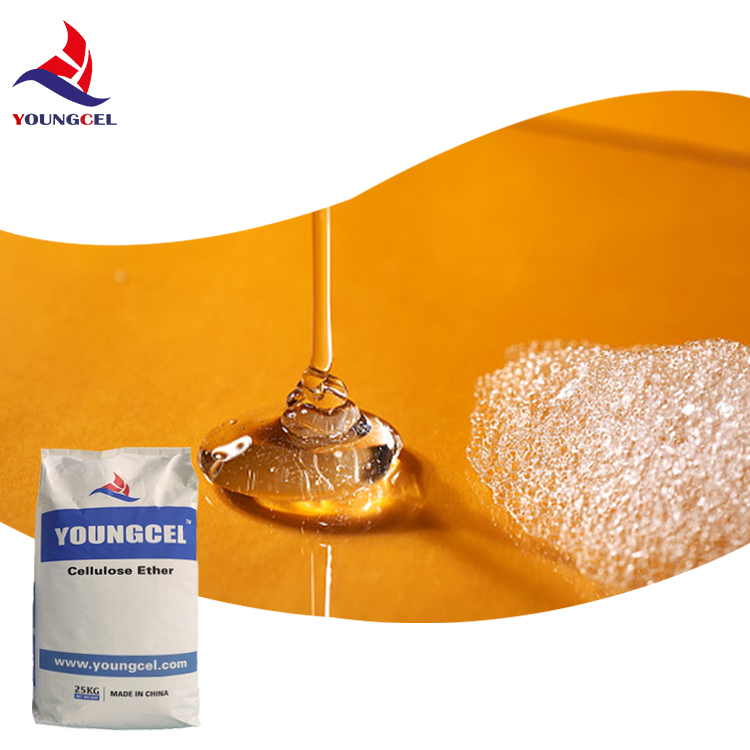An Overview of Industrial Grade HPMC Properties and Applications
Hydroxypropyl Methylcellulose (HPMC) is a versatile polymer that has gained significant traction in various industrial applications due to its unique properties. This cellulose ether, derived from natural cellulose, exhibits excellent water retention, thickening, and emulsifying capabilities, making it a valuable ingredient in different sectors, including construction, pharmaceuticals, and food processing. This article focuses on industrial-grade HPMC, exploring its characteristics, advantages, and diverse applications.
Properties of Industrial Grade HPMC
Industrial grade HPMC is characterized by its high viscosity, water solubility, and non-ionic nature. It is a white to off-white powder that can dissolve in water to form a clear solution or colloidal gel. The degree of substitution (DS) of HPMC, which indicates the number of hydroxyl groups replaced by hydroxypropyl and methoxy groups, influences its solubility and viscosity. By adjusting the DS, manufacturers can tailor HPMC to meet specific performance requirements.
One of the key characteristics of industrial-grade HPMC is its thermal stability. It retains its performance under a variety of temperatures, making it suitable for applications that experience fluctuating conditions. Moreover, HPMC is resistant to most chemicals, including acids and bases, enhancing its utility in different manufacturing processes.
Advantages of Using Industrial Grade HPMC
1. Versatility HPMC showcases a broad range of compatibility with other substances, allowing it to be used in various formulations. Its ability to act as a binder, thickener, and emulsifier makes it a multi-functional ingredient, reducing the need for multiple additives.
2. Eco-friendliness Being derived from natural cellulose, HPMC is biodegradable and contributes to environmentally sustainable practices in industries that are increasingly focused on reducing their ecological footprint.
3. Enhanced Performance HPMC improves the performance of products by providing better adhesion, workability, and spreadability. In construction, for example, it enhances the performance of mortars and plasters, leading to better durability and ease of application.
industri grade hpmc

4. Regulatory Compliance Industrial-grade HPMC is generally recognized as safe (GRAS) and conforms to various international regulatory standards, making it suitable for use in a variety of industries.
Applications of Industrial Grade HPMC
1. Construction HPMC is widely used in the formulation of cement-based materials, such as tile adhesives, grouts, and self-leveling compounds. Its water-retention properties help improve the workability and adhesion of these products, leading to enhanced performance.
2. Pharmaceuticals In the pharmaceutical industry, HPMC is used as an excipient in tablet formulations, offering controlled release characteristics and aiding in the manufacturing process. Its gel-forming ability contributes to the creation of sustained-release formulations.
3. Food Industry HPMC serves various roles in food applications, including as a thickening agent in sauces and dressings, as well as an emulsifier in ice creams. Its ability to maintain texture and stability in food products is highly valued.
4. Cosmetics and Personal Care HPMC is found in numerous cosmetic formulations, where it acts as a thickener and stabilizer. Its non-toxic and hypoallergenic nature makes it suitable for use in sensitive skin products.
Conclusion
Industrial-grade Hydroxypropyl Methylcellulose stands out as a crucial ingredient across diverse sectors due to its unique properties and versatility. As industries continue to seek sustainable and efficient solutions, the demand for HPMC is expected to grow. Its broad applications in construction, pharmaceuticals, food processing, and cosmetics highlight its significance and adaptability in meeting modern industrial needs. As advancements in technology continue, the development of new HPMC formulations will likely lead to even more innovative applications, solidifying its place as an essential player in various industries.
-
Rdp Powder: Key Considerations for Wholesalers in the Building Materials IndustryNewsJul.08,2025
-
Key Considerations for Wholesalers: Navigating the World of Hpmc - Based ProductsNewsJul.08,2025
-
Hpmc Detergent: Key Considerations for WholesalersNewsJul.08,2025
-
Key Considerations for Wholesalers: China Hpmc For Tile Adhesive, Coating Additives, Concrete Additives, and MoreNewsJul.08,2025
-
Crucial Considerations for Wholesalers: Navigating the World of Construction MaterialsNewsJul.08,2025
-
Key Considerations for Wholesalers Sourcing Additive For Cement, Additive For Concrete, Additive For Putty from Additive Manufacturer Shijiazhuang Gaocheng District Yongfeng Cellulose Co., Ltd.NewsJul.08,2025




